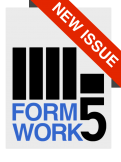Economies of scale, what does this phrase mean in the world of super? Without doubt, the government and the regulators are pushing small funds to merge to create better ‘scale’ as it is seen to be a benefit for fund members.
Put simply, it means that larger funds are more able to negotiate better deals on contracts and fees if they have a large membership base. The bills are divided by more members and individual members pay less as a result. And what are the main bills an outsourced super fund has to pay? Administration expenses – the call centre, staff salaries, reporting, compliance expenses, mail and website maintenance.
Custodial fees are considerable as the custodian holds all fund assets, deals with all financial transactions and collects investment information in order to strike weekly unit prices and annual returns for all investment options. Investment managers work on a contractual basis for fees, some of which vary based on their performance.
Obviously the quality of the investment managers helps to determine fund returns so their importance cannot be underestimated. A highly regulated super fund must pay for regular audits, often internal and external, to ensure compliance with the law is met at all levels. Regulated funds are also required to pay levies to support both APRA and ASIC. And of courses there are other significant bills such as insurance, tax advice, legal advice, rent, IT services and miscellaneous expenses.
In line with current regulatory pressures and as a result of the ‘members’ best interest test’, NGS Super and QIEC have announced their intention to merge to create a $10.3 billion superannuation fund with around 125,000 members. QIEC is a like minded Queensland based industry fund established for teachers and support staff in independent schools and child care centres. It has $1.5 billion in assets under management and over 25,000 members.
It was established by the Queensland IEU and QIEC’s Chairperson, Terry Burke, has stated, “In the current regulatory and investment environment, QIEC Super needs to look to its future beyond a stand-alone fund and consider how the interests of members might be strengthened and enhanced with a larger like minded education and care industry fund”.
The Trustees of both funds have considered the benefits of the economies of scale for their members and have concluded that the joining of the two funds will result in a stronger and more secure financial future for members under the new structure as well as contributing to the sustainability of the merged entity.
In a press statement, NGS Super’s Chairperson stated, “The proposed merger with QIEC has been driven by synergies between the two funds which are set to further strengthen our position into the future. Our members’ interests are at the core of this alliance which represents the continued and welcomed growth of our fund to secure the financial futures of all our members”. The combination of the two funds will create a much larger entity with a strong presence in Queensland.
The planned merger is subject to a rigorous due diligence and risk assessment process and also subject to final approval by the Regulators. The planned time frame for the merger of the two funds is 1 November, 2018, followed by a full integration on a single administration platform on 1 October 2019.
Members of the two funds will be advised of the progress of the alignment and the new partnership. NGS Super looks forward to working with the highly regarded QIEC superannuation fund to develop a stronger national presence and to provide members of both funds with a larger, stronger super fund in line with the ‘members’ best interest’.










































































































































